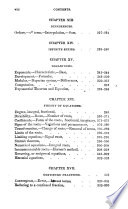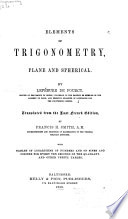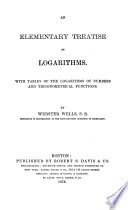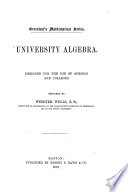 | Stephen Chase - Algebra - 1849 - 348 pages
...sometimes also the RADIX (§23. d), of the system. Hence, for a given base, § 312. The logarithm of any number is the exponent of the power to which the base must be raised, to produce that number. Thus, 2 is the logarithm of 100 to the base 10 ; because ~2 is the exponent of the power... | |
 | George Wirgman Hemming - 1851 - 176 pages
...the logarithm of the number N to the base a ; that is, the logarithm of any number to a given base is the power to which the base must be raised to produce the number. This is commonly expressed by the equation x=logaN 32. When the logarithms of numbers to any... | |
 | Robert Fowler - 1861 - 426 pages
...number from 0 to зэ may be regarded as a power of that base. The " Logarithm" of a number is the index of the power to which the base must be raised to produce that number. If 4 be the base, then 42 = 16) And these equalities may be written log. 16 = : log. 8... | |
 | Lefébure de Fourcy (M., Louis Etienne) - Trigonometry - 1868 - 350 pages
...to the law of continuity and do not reproduce all numbers. The logarithm of a number to a given base is the exponent of the power to which the base must be raised to become equal to the given number. 4. Since a1 =a, a° = l, and a—=° =0, or а+°° =0, according... | |
 | Elias Loomis - Conic sections - 1877 - 458 pages
...All numbers are regarded as powers of some one number, which is called the base of the system ; and the exponent of the power to which the base must be raised in order to be equal to a given number is called the logarithm of that number. The base of the common... | |
 | Webster Wells - Logarithms - 1878 - 124 pages
...то 90° 17 DEFINITIONS AND PROPERTIES. I, DEFINITION. The logarithm of a quantity to any given base, is the exponent of the power to which the base must be raised to equal the quantity. For instance, if ax = m, x is the exponent of the power to which the base, a, must... | |
 | Webster Wells - Algebra - 1879 - 468 pages
...for 4 years and 6 months ? XLI. — LOGARITHMS. 444. The logarithm of a quantity to any given base, is the exponent of the power to which the base must be raised to equal the quantity. For example, if a* = m, x is the exponent of the power to which the base, a, must... | |
 | Edwin Pliny Seaver, George Augustus Walton - Algebra - 1881 - 304 pages
...positive value except 1. The base of the common system of logarithms is 10. 384. The logarithm of a number is the exponent of the power to which the base must be raised to produce the number. The abbreviation log is used for the words the logarithm of. 385. The value of x which satisfies... | |
 | Webster Wells - 1883 - 298 pages
...cosж.) 10. sina;= aina sin (x + b). VI. LOGARITHMS. 84. 7%e logarithm of a quantity to a given base is the exponent of the power to which the base must be raised to equal the quantity. Thus, if a•= m, x is the exponent of the power to which the base a must be raised... | |
 | Simon Newcomb - Algebra - 1884 - 576 pages
...of a number, a constant number is assumed at pleasure and called the base. Def. The Logarithm of a number is the exponent of the power to which the base must Ъе raised to produce the number. The logarithm of x is written log x. Let us put a, the base ; x,... | |
| |